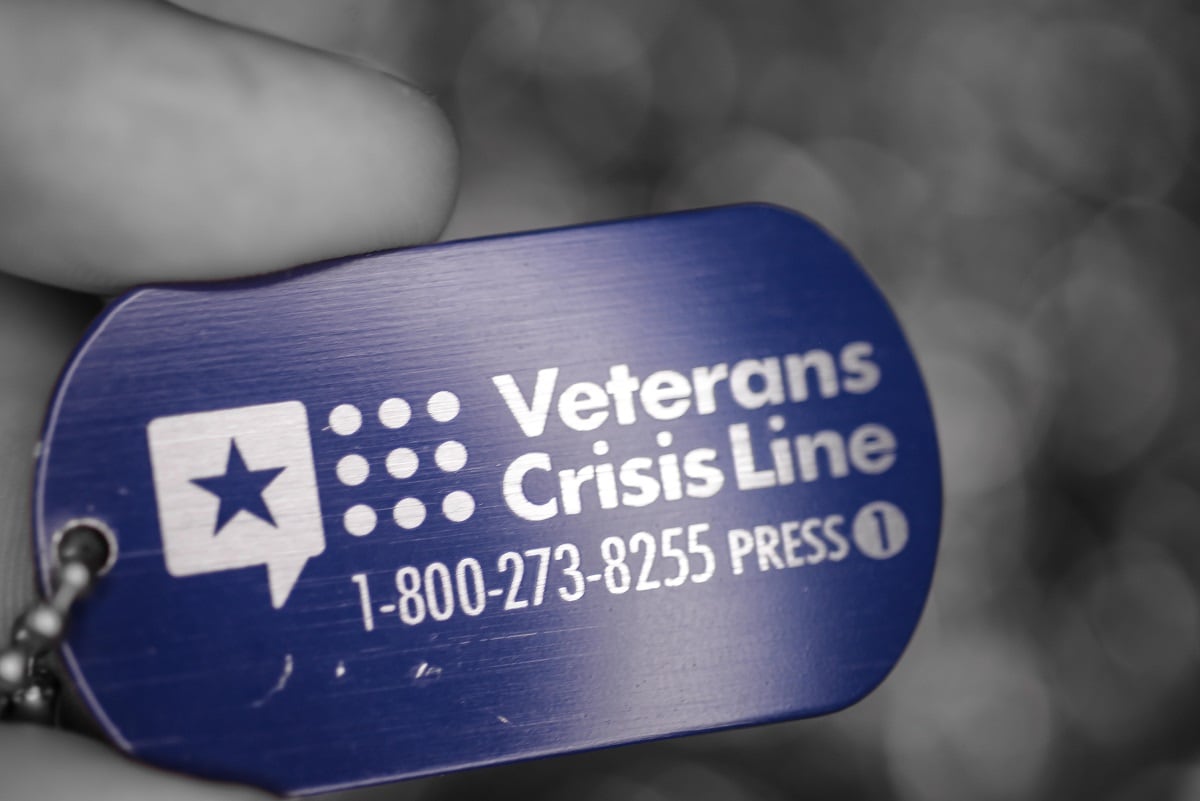Veterans Affairs’ top suicide prevention official will leave that post next month as the congressional focus on the department’s efforts continues to increase.
Dr. Keita Franklin, who has served as the National Director for Suicide Prevention at VA for the last 18 months, will step down from the job in July. Officials said the move was not related to any issues with her office’s performance but instead based on other career opportunities outside of VA.
Dr. Matt Miller, the current director of the Veterans Crisis Line, will fill the post in an acting capacity until a permanent replacement is selected.
In a statement, department leaders praised Franklin for her work in the last few years, giving her credit for “key successes” in improving mental health care for veterans. Prior to joining VA, she served as the Defense Department’s top suicide prevention official.
RELATED

“Under her leadership, VA instituted a public health approach to suicide prevention, developed the first ever national strategy for veteran suicide prevention, significantly bolstered private sector partnerships, and garnered commitments from mayors and governors to implement broad community-based programs to prevent veteran suicide,” the department statement said.
But Franklin’s tenure was also marked by increasing concern among lawmakers and advocates about the effectiveness of VA programs, as updates to annual data saw little change in the rate of suicide among veterans in recent years.
About 20 veterans and one active-duty servicemember die by suicide each day, according to the latest research from the department. But those numbers lag by about two years because of national death statistics collection, leading to questions about the impact of recent programming changes at the department.
At least 24 suicides have occurred on VA campuses in the last 20 months, several in public areas. But department officials insist that the suicide rate at those clinics and hospitals has actually decreased in recent years, even as visibility of the problems has risen.
Last fall, lawmakers blasted the department after the Government Accountability Office found that more than $6 million in suicide prevention and mental health support outreach funds went unspent by the department in fiscal 2018. Officials blamed that mistake on leadership changes at the department in prior months, including the firing of former VA Secretary David Shulkin.
Earlier this year, President Donald Trump announced plans for a government-wide task force, led by VA. on the issue of preventing veterans suicide. Trump called the issue a failure of the country to repay military members sacrifices. The group’s final recommendations are expected next spring.
RELATED

Both Shulkin and current VA Secretary Robert Wilkie have publicly stated that reducing the number of veterans suicides nationwide is their top clinical priority. At a Senate hearing on the issue last week, Wilkie hailed Franklin as a leading expert on suicide prevention and a dedicated public servant.
“There is no person in this country who has done more to raise awareness and fight what is a terrible but preventable tragedy in this country (than Franklin),” he said
Miller has served as the Veterans Crisis Line director for the last two years. The program has expanded in recent years to three sites which field more than 1,700 calls each day. Since 2007, the hotline has worked with local emergency services aid veterans facing an “imminent crisis” more than 93,000 times.
Veterans experiencing a mental health emergency can contact the Veteran Crisis Line at 1-800-273-8255 and select option 1 for a VA staffer. Veterans, troops or their families can also text 838255 or visit VeteransCrisisLine.net for assistance.
Leo covers Congress, Veterans Affairs and the White House for Military Times. He has covered Washington, D.C. since 2004, focusing on military personnel and veterans policies. His work has earned numerous honors, including a 2009 Polk award, a 2010 National Headliner Award, the IAVA Leadership in Journalism award and the VFW News Media award.




